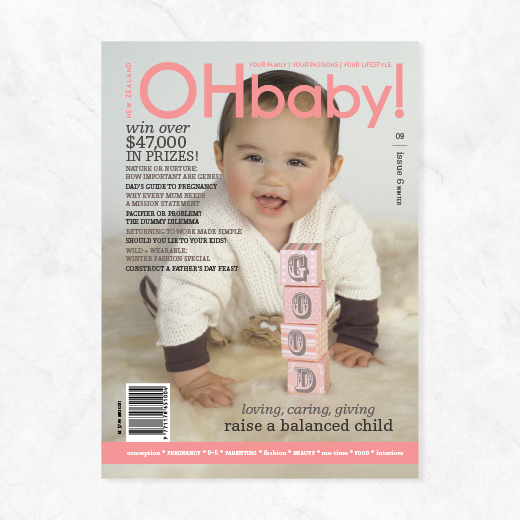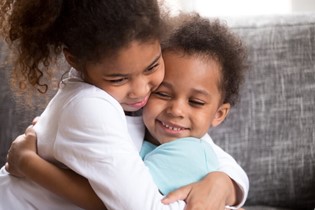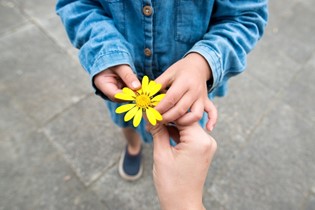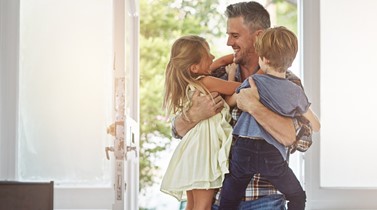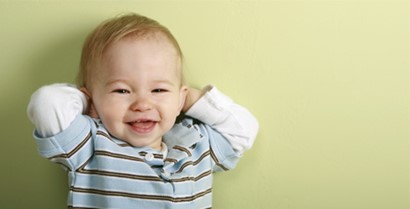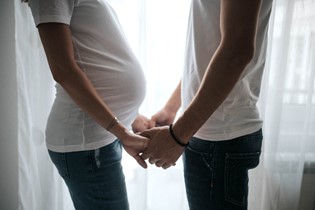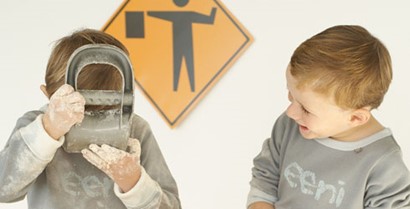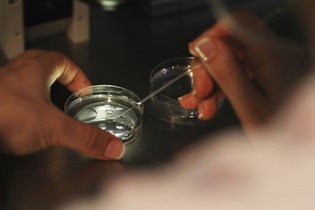Love for love's sake
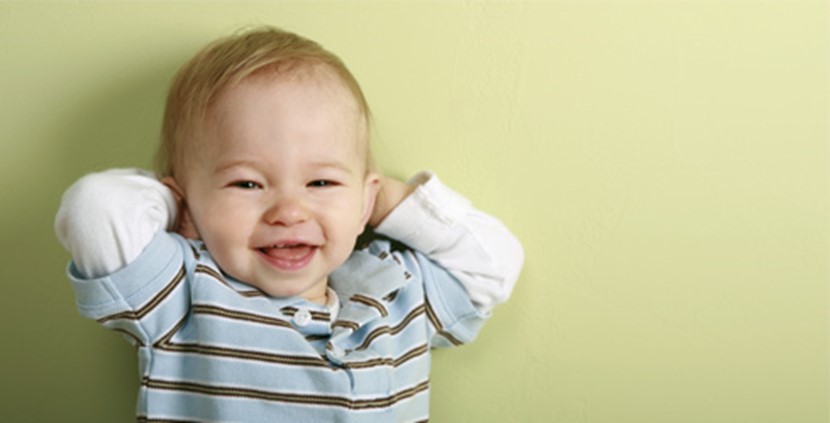
Showing your child unconditional love is the key to raising a confident, self-assured individual, explains Angela Smith.
Children naturally want to play, and it doesn't take much to elicit smiles on their faces. They remind us to live in the moment - to laugh, to play, to have fun and, simply, to be. Let us love, respect, and nurture the children in our lives for the gift of life that they are, love them for the sake of loving, and love them for their innate magnificence.
To act from a space of love with our children is to give them the greatest gift of all - to love not because our children are good, not despite the times they're bad, but simply to love them wholly for the human beings that they are. When children feel lovable, they're far more likely to go confidently into the world and act in ways that serve themselves and others. When we love and accept our children for who they are, and not for what or whom we want them to be, we're letting them know that we trust them enough to find their own path. When our children feel our trust in them, especially as young adults, then they're far more likely to trust us enough to turn to us in times of crisis.
In his book The Prophet, Lebanese-American poet Khalil Gibran suggests that our children come through us to find their own way: "Your children are not your children. They are the sons and daughters of Life's longing for itself." They are life longing to explore - we don't own their souls, they merely come through us to be nurtured and guided as best we can, and the time frame in which we can do this is small.
For it won't be long before our children will be taking their first steps out to the world, first to kindy and then to school, and we will no longer be able to navigate the external influences in their lives - they will still have others alongside them, such as their kindy teachers, but it will no longer be us.
But we get so caught up in everyday things that we risk losing sight of the bigger picture in our lives, and subsequently, the bigger picture in our children's lives as well. Things that upset us today may seem trivial one or 10 years down the track - if, in fact, they are remembered at all. When we are able to see each day as a small part of the larger picture of life, perhaps, we will take to heart the best of our children right now and leave the upsets behind?
To be the first person your child turns to in a time of crisis, you need to be the one they trust enough to turn to right now. When we show our children we won't jump down their throats when they've acted out of line, when we offer compassion and wisdom no matter what their behaviour, we ensure that they will seek us out in times of need.
Can you imagine your young child as a teenager? What do you see? Do you see a relationship filled with love, or one marred by conflict? Perhaps you have expectations that simply don't fit your child, or the ideals you wish or expect from them are ones you haven't attained yourself.
A teenager won't open up to you if the most common words they've heard have been, "Not now, I'm too busy!", or if you've feigned interest in them, or reacted time and time again from a space of anger. Right from an early age, a child learns who they can trust to be there for them.
To lead by example, to set in motion the ideals we wish for our children in our own lives, is the best way to give our children a chance. By demonstrating traits of compassion, kindness, and respect not once, not twice, but as a priority, we set the wheels in motion for our children to mimic these traits. On the other hand, when we act negatively, or in ways that are disempowering, then we teach our children to be this way.
When we look for things to acknowledge and be thankful for, it's amazing how many things we can find. And, as with almost anything, with a child you can turn it into a game. When you acknowledge kindness around you, you show your child how to look for kindness and to be a person who expresses kindness him- or herself.
Children do take note of all that is said and done - they notice how we interact with others and how we interact with ourselves. Speak kindly of yourself: This way we give our children the greatest power of all - the gift of what it truly means to love ourselves. When our children hear us speak kindly of ourselves and see our expressions of compassion, they too learn to express themselves from a place of compassion. What we say and model to our children helps shape their lives. Equally as important is our body language. And sometimes, what is left unsaid speaks a thousand words.
Children hang on our every word. Often they don't understand the actual words we have said, but they understand our encouraging looks, and feel the love from our hearts and the warmth when we place our arms around them. Never underestimate the intuitiveness and knowing of a child. Far more than words, they understand when the smile on our face is suddenly replaced with a grimace, a frown, or a look of disappointment.
Take the time to watch your child at play with their teddies, dolls, and playmates; listen to the conversations they have with their friends. You will hear exactly the same language, and intonations, that you use. How do we know this to be true? By seeing our every nuance, expletive, and behaviours being played out in front of us!
As parents, grandparents, or caregivers, we're the first to step forward with a smile on our face when a child excels. Are we just as happy to step forward when the same child has been singled out for unkind behaviour or an unkind word? When we show our children kindness in every respect, no matter what their behaviour, we show them what it is to love. When we love for the sake of loving and choose to love our children no matter what their behaviour, we convey the message to children that they are lovable. This is what it truly means to love - digging deep inside and acting from a place of integrity and open-heartedness, taking circumstance, tiredness, and blame out of the equation, and acting from a perspective of positivism and love when interacting with the children in our lives. This way, any behaviour that is out of place can be addressed and changed from a space of love, not anger.
Rather than stating that we want the best for our children, let's proceed as if we do want the best for our children; acting, again, in ways which encourage and bring out the very best in each and every child we interact with. Likewise, act confidently within ourselves, for we give our children the courage to be confident by showing confidence in our own lives.
Integrity is a fundamental part of who we are too - an equation made from adding our values and beliefs. Let's act in ways that our children, and those around us, can trust. How secure a child must feel knowing that they can trust that when we say something, they know this to be the truth! That when we make a promise we will follow through, that what we say we will do will clearly be followed up with our actions and commitment. This way, we are building the cornerstone of trust with our children, and opening a greater space within our hearts to love.
Children do look up to us, especially in these early years. Love and respect them for who they are and they too will learn to love and respect themselves for the human beings that they are. Gift them your time and your involvement in their lives and they'll be far more likely to come to you when they're grown up.
Angela Smith is an author and personal motivator. Her first book, I Love Myself, encourages greater self-esteem. More information is available on her website, www.truepotential.co.nz

AS FEATURED IN ISSUE 6 OF OHbaby! MAGAZINE. CHECK OUT OTHER ARTICLES IN THIS ISSUE BELOW
